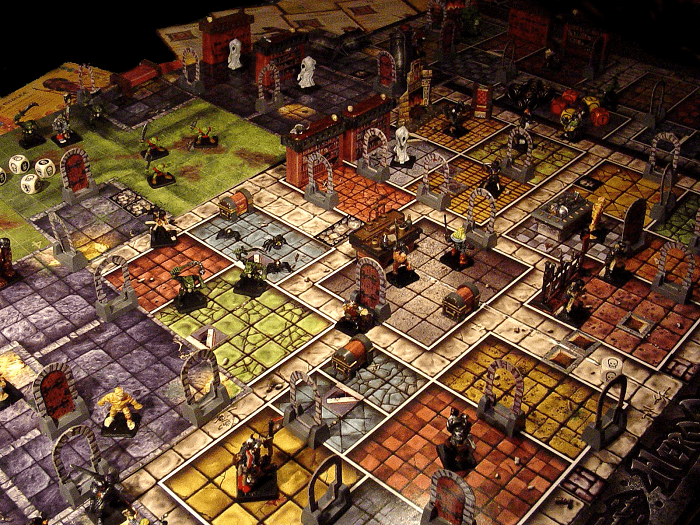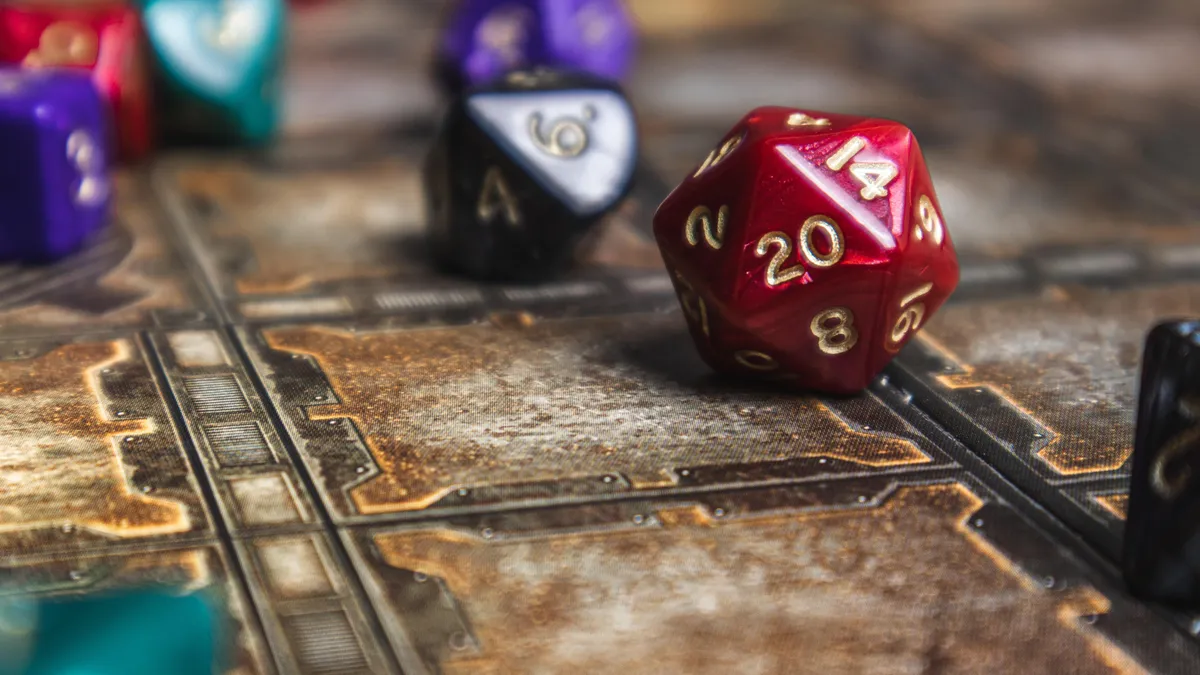Tabletop roleplaying games (RPGs) have captivated the hearts and minds of players for decades, providing an immersive and collaborative storytelling experience.
In this comprehensive beginner’s guide, we will delve into the art of tabletop RPGs, exploring the fundamental concepts, mechanics, and tips to help newcomers embark on their own thrilling adventures.
Whether you’re a seasoned gamer curious about other systems or a complete novice taking your first steps into the world of RPGs, this guide will equip you with the knowledge to dive into this unique and rewarding hobby.
Understanding Tabletop RPGs
Definition and Origins
Tabletop RPGs are interactive games where players assume the roles of characters within a fictional world. These games trace their roots back to the early 1970s with the advent of Dungeons & Dragons, which set the foundation for the genre we know today.
Core Components
To understand tabletop RPGs, it’s essential to grasp their core components:
Game Master (GM) or Dungeon Master (DM):
The GM/DM guides the narrative, creates the game world, and controls non-player characters (NPCs).
Players
The participants in the game, each assuming the role of a unique character with their own traits, abilities, and backstory.
Rulebooks and Systems
RPGs have rulebooks that outline the mechanics, character creation rules, and guidelines for gameplay. Systems like Dungeons & Dragons and Pathfinder provide specific frameworks for gameplay.
Setting and Theme
RPGs can be set in a variety of worlds and eras, from high fantasy realms to sci-fi dystopias. The chosen theme adds flavor and influences the gameplay experience.
Choosing the Right RPG System
Popular RPG Systems
There are various RPG systems to choose from, each with its own strengths and unique gameplay mechanics. Some of the most popular systems include Dungeons & Dragons (5th edition), Pathfinder, Call of Cthulhu, and Savage Worlds. Consider factors like complexity, theme, and compatibility with your group’s interests when selecting a system.
Character Creation
Character creation is an exciting aspect of RPGs. It involves building a unique player character (PC) by selecting a race, class, and background. Collaborative character creation can foster connections between PCs and enhance the group dynamic.

Gameplay Mechanics and Dynamics
1. Game Flow
A typical tabletop RPG session involves a blend of exploration, combat encounters, and roleplaying interactions. The GM sets the scene, presents challenges, and facilitates the flow of the game, while the players respond by making decisions and taking actions.
2. Dice Mechanics
Dice rolls play a significant role in determining outcomes in RPGs. Different dice types, such as the iconic 20-sided die (d20), are used to resolve actions and determine success or failure. Understanding dice mechanics and their impact on storytelling is essential for players and GMs alike.
3. Roleplaying and Improvisation
Immersive roleplaying and improvisation are key elements of tabletop RPGs. Players can embrace their characters, develop unique voices, and engage in collaborative storytelling. Improvisation allows for dynamic and spontaneous interactions within the game world.
The Game Master’s Role
Creating Engaging Narratives
As the GM, you have the responsibility of crafting compelling narratives. This involves developing storylines, intriguing plot hooks, and conflicts that challenge the players’ characters. Balancing player agency with the overall story arc is crucial for an engaging experience.
Managing Encounters
GMs must create diverse and balanced encounters, including combat encounters, puzzles, and social challenges. Designing encounters that keep players engaged and offer opportunities for strategic decision-making adds depth to the game.
Nurturing Player Engagement
Fostering a supportive and inclusive gaming environment is essential for player engagement. Encourage players to actively participate in the story, express their creativity, and make meaningful contributions to the game world. Giving players agency and recognizing their achievements enhances their investment in the game.
Expanding Your RPG Experience
Modules and Adventure Paths
Published adventures, known as modules or adventure paths, provide pre-written content that can be used as standalone adventures or integrated into your own campaigns. They offer ready-made storylines, maps, and non-player characters, saving time and providing inspiration. Adapting modules to suit your campaign allows for customization and personalization.
Homebrewing
For those seeking complete creative freedom, homebrewing involves crafting original campaigns, settings, and stories from scratch. This allows you to tailor the game to the preferences of your group and explore unique themes and ideas. However, homebrewing requires more planning and preparation compared to using pre-written material.
FAQs
What is a tabletop roleplaying game (RPG)?
A tabletop RPG is an interactive game where players assume the roles of characters within a fictional world, engaging in collaborative storytelling and using rules and mechanics to navigate challenges and adventures.
How many players are typically involved in a tabletop RPG?
The number of players can vary, but most tabletop RPGs are designed for a group of 3 to 6 players, including one player acting as the Game Master (GM) or Dungeon Master (DM) who guides the game.
Which RPG system should I choose as a beginner?
Popular RPG systems for beginners include Dungeons & Dragons (5th edition), Pathfinder, and Savage Worlds. Consider factors such as complexity, theme, and the preferences of your group when selecting a system.
Do I need any prior experience or knowledge to play tabletop RPGs?
No prior experience is necessary to play tabletop RPGs. Most RPG systems provide rulebooks that guide you through character creation, gameplay mechanics, and the overall flow of the game. Beginner-friendly systems often include introductory adventures to help new players get started.
Can I create my own adventures and campaigns for tabletop RPGs?
Absolutely! Many tabletop RPGs encourage players to create their own adventures and campaigns, known as homebrewing. This allows for customization, creativity, and tailoring the game to suit your group’s preferences and storytelling interests.
In a Nutshell
Tabletop RPGs offer an immersive and collaborative storytelling experience that has captured the imaginations of players for decades.
By understanding the core components, choosing the right RPG system, and embracing gameplay mechanics, beginners can embark on thrilling adventures. As a GM, you have the power to create engaging narratives and facilitate memorable encounters.
Whether you prefer pre-written adventures or enjoy the creative freedom of homebrewing, tabletop RPGs provide endless opportunities for creativity, teamwork, and epic storytelling.
Have any questions in mind regarding the topic The Art of Tabletop Roleplaying Games? Feel free to comment below.
Also Read: How to make your custom creature – Pathfinder edition
 Skip to main content
Skip to main content

